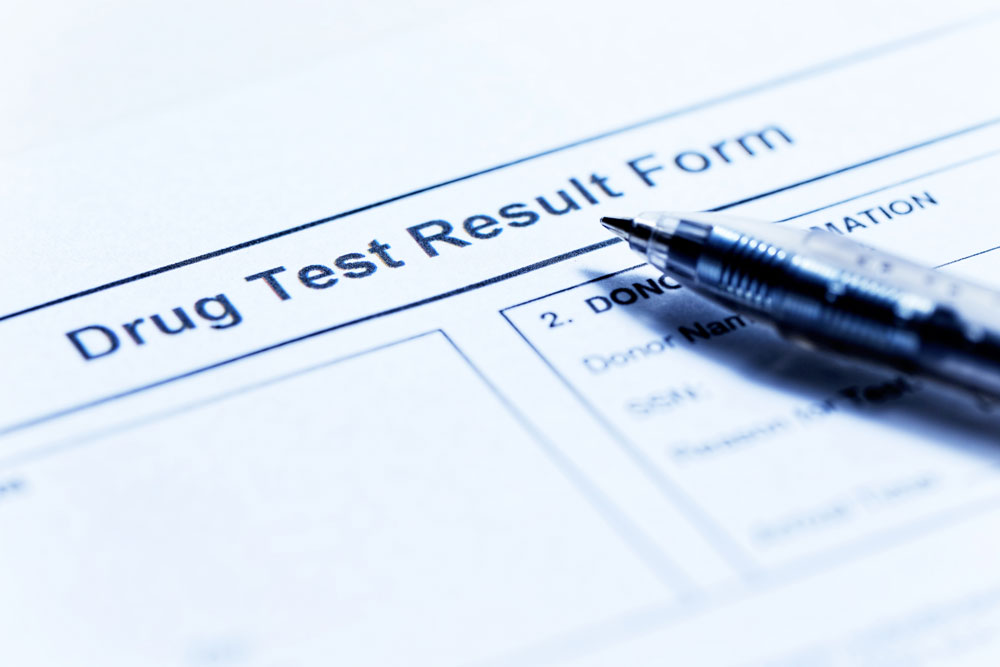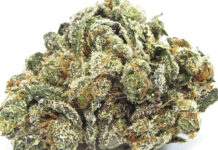A new state bill may finally ban cannabis testing—long known to be useless and damaging—in the workplace
As the CEO of the weed-delivery service Ganja Goddess, Zach Pitts is particularly exposed to the potential bad outcomes of people being high on the job. He employs between 40 and 50 people who drive all over California. If one of them were in an accident and it was discovered that the driver had cannabis in their system, it could result in the company facing major liability. Conceivably, it could put him out of business. The fact that his company sells weed would likely open him up to even more criticism, particularly from politicians and activists who oppose legalization.
Other than carefully hiring and managing his drivers, though, there’s not much he can do to prevent such an eventuality.
“Obviously, none of our drivers should be high while they’re working,” says Pitts, whose company is based in Los Angeles and has a major facility in Oakland. “But there’s no consistent, reliable way to test for the active use of cannabis.”
Not that he would do so, even if he could. “I have to trust them and their judgment,” he says. Given the essential uselessness of cannabis testing, that’s all any employer really can do. The employers that do conduct testing aren’t actually finding out anything about their employees beyond knowing whether they have or have not used cannabis in recent weeks (or even months, depending on the method of testing). A positive test given to a person who used cannabis weeks earlier might yield the same positive result as a test given to a person who is actively stoned.
That hasn’t stopped American industry from signing on with cannabis testing in wholesale fashion over the past few decades, either with pre-employment screening or with spot checks of existing workers.
Weed is entirely legal for adults in 18 states plus Washington, D.C., and decriminalized in 13 more. Counting states with medical marijuana programs, pot is legal in one form or another now across most of the country. So, the notion of testing employees for cannabis use is increasingly seen as archaic. Companies are starting to review the practice. Amazon made a big splash in June when it announced it would stop pre-employment screening for all workers and declared that it favors the legalization of pot at the federal level. “Given where state laws are moving across the U.S., we’ve changed course,” Amazon retail executive Dave Clark said at the time.
This isn’t necessarily due to companies feeling compelled to do the right thing. Employers are finding it harder to attract workers, especially companies like Amazon that employ many low-skilled and semi-skilled people. They are looking for ways to draw more people into their application pools.
Oakland is now considering an ordinance that would end the practice of testing city employees for cannabis use. It might seem ludicrous that Oakland, widely considered the pot capital of the U.S., is still testing employees, but it’s far from uncommon.
The measure might be rendered unnecessary if a bill under consideration in the state legislature were to be signed into law. Assembly Bill 1256, sponsored by Assemblyman Bill Quirk, D-Hayward, would ban testing employees for cannabis use. There are some exceptions, such as jobs with a federal mandate to test for THC. Most often, those are jobs regulated by the federal Department of Transportation. Amazon similarly said it would continue testing people in those positions.
If you think the whole notion of testing employees for pot use is ludicrous, Oakland City Council Member Rebecca Kaplan, who sponsored the proposed city ordinance, agrees with you. “Cannabis is legal. There is no valid reason we should be testing people for it,” she said.
Of course, alcohol is legal, too, but we test for that all the time, particularly cops on the roadside, and few people think that’s wrong. The big difference is that if a breathalyzer detects alcohol above a certain limit, that’s a good indication that the person blowing into it is impaired. Alcohol burns off fairly quickly after it’s consumed. That’s simply not the case with pot, which lingers in the body long after it’s ingested, and long after the high has worn off.
And yet, cops routinely test drivers for cannabis use. People have spent years in jail for “driving under the influence,” despite no solid evidence that they were under the influence of anything while they were driving.
Brian, who lives in the Midwest and asked that his last name and home state be withheld, was the editor of a small-town newspaper eight years ago when he was pulled over for speeding. He submitted a saliva test. “I was slightly nervous about it, but pretty sure it would come back negative,” since it had been a few weeks since he’d ingested any cannabis, he says. No such luck. He was charged with DUI and lost his job and his marriage through a series of resulting events. His former newspaper ran a story about his arrest. He avoided jail time but had to pay a hefty fine. He now lives in a tiny apartment and works nights in a telemarketing call center. The drug test “ruined my life,” he says.
Stories like Brian’s are why the American Civil Liberties Union has declared that testing drivers for cannabis use are “probably unconstitutional.” Chloe White, policy director of the ACLU’s Vermont chapter, wrote in 2018 that “unlike breathalyzers, [cannabis tests] say nothing about actual impairment at the time of testing.”
As laws and corporate policies change to adapt to the new reality, many employers are left to their own sense of fairness. For Pitts of Ganja Goddess, treating employees with respect doesn’t include forcing them to hand over their urine, hair, blood or saliva.
“It’s just really condescending to drug-test people,” he says. “If there’s a problem with an employee, you can address it without being invasive.”








